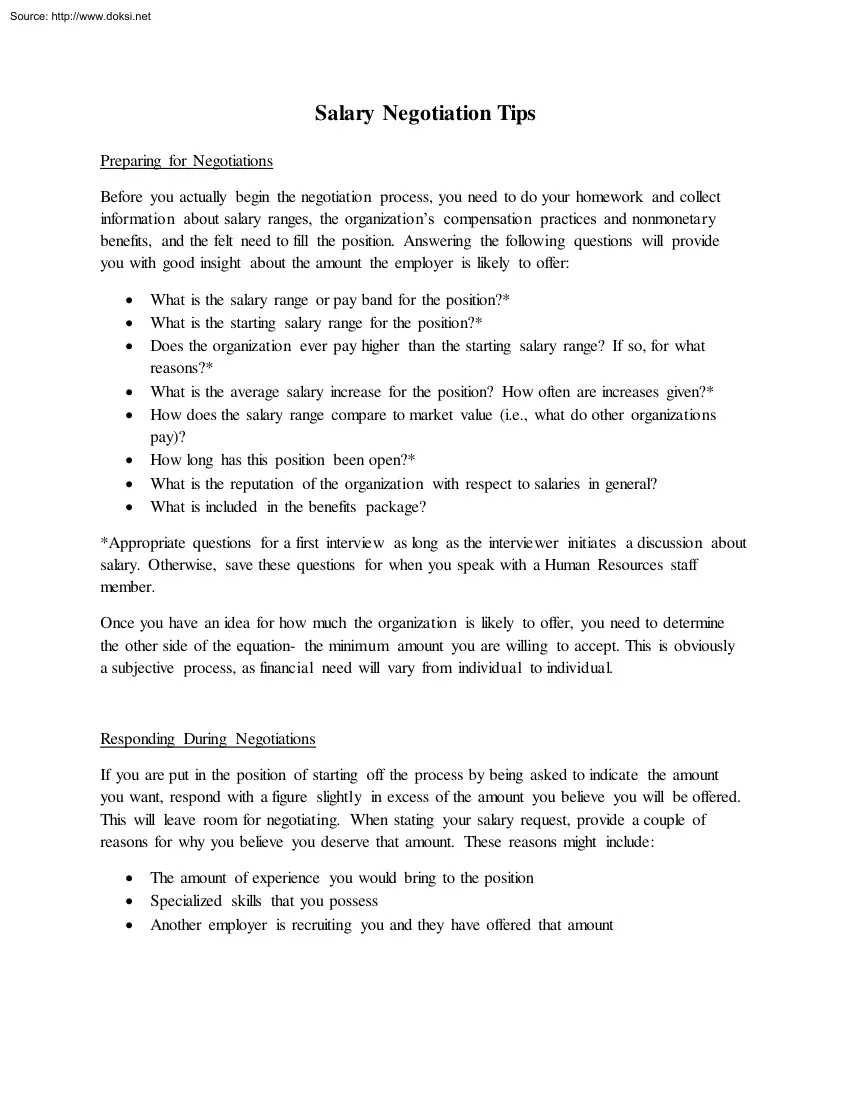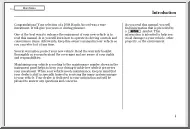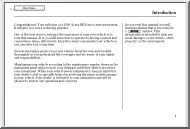Comments
No comments yet. You can be the first!
Content extract
Source: http://www.doksinet Salary Negotiation Tips Preparing for Negotiations Before you actually begin the negotiation process, you need to do your homework and collect information about salary ranges, the organization’s compensation practices and nonmonetary benefits, and the felt need to fill the position. Answering the following questions will provide you with good insight about the amount the employer is likely to offer: What is the salary range or pay band for the position?* What is the starting salary range for the position?* Does the organization ever pay higher than the starting salary range? If so, for what reasons?* What is the average salary increase for the position? How often are increases given?* How does the salary range compare to market value (i.e, what do other organizations pay)? How long has this position been open?* What is the reputation of the organization with respect to salaries in general? What is included in the benefits
package? *Appropriate questions for a first interview as long as the interviewer initiates a discussion about salary. Otherwise, save these questions for when you speak with a Human Resources staff member. Once you have an idea for how much the organization is likely to offer, you need to determine the other side of the equation- the minimum amount you are willing to accept. This is obviously a subjective process, as financial need will vary from individual to individual. Responding During Negotiations If you are put in the position of starting off the process by being asked to indicate the amount you want, respond with a figure slightly in excess of the amount you believe you will be offered. This will leave room for negotiating. When stating your salary request, provide a couple of reasons for why you believe you deserve that amount. These reasons might include: The amount of experience you would bring to the position Specialized skills that you possess Another
employer is recruiting you and they have offered that amount Source: http://www.doksinet Salary Negotiating Tips (continued) If the employer counters with an offer that is below the level of your request, ask for the rationale. You could say something like “That’s less than I was hoping for, Can you share with me some of your thinking behind this amount?” When the rationale for the lower offer seems somewhat weak, and the employer’s tone doesn’t suggest a strong resolve, assume there is further room for negotiations. Either stick with your original request or suggest a compromise figure. When the rational provided by the employer seems fairly solid and the tone suggests a strong resolve to go no higher than the counter amount offered, it is probably unwise to attempt to negotiate a higher salary if you truly want the position. Keep in mind that a few companies have a rigid “first offer is last offer” policies and most companies have tighter entry level salaries since
the skill sets at this level are easier to define and the candidate pool is large. If you find yourself in this situation, you may want to try and negotiate the non-monetary options as employers usually have more flexibility in this area. For instance, you may ask for 10 days of vacation if 7 days is the standard for the first year of employment. If the employer starts off the process by stating an offer that is truly unacceptable, you must communicate this while keeping your outlook for resolution positive. For instance, you could say something like, “I am very interested in working for this company; however, at this point I am not able to accept the offer because .” State specifically what is lacking in the offer but be succinct. Is it the amount? Is it the insurance coverage? Is it the business travel requirements? “If you were able to (give proposed solution), I would be happy to accept the position. Are you in the position to met my request?” One needs to
tread carefully when using this strategy as such negotiation could put the offer at risk
package? *Appropriate questions for a first interview as long as the interviewer initiates a discussion about salary. Otherwise, save these questions for when you speak with a Human Resources staff member. Once you have an idea for how much the organization is likely to offer, you need to determine the other side of the equation- the minimum amount you are willing to accept. This is obviously a subjective process, as financial need will vary from individual to individual. Responding During Negotiations If you are put in the position of starting off the process by being asked to indicate the amount you want, respond with a figure slightly in excess of the amount you believe you will be offered. This will leave room for negotiating. When stating your salary request, provide a couple of reasons for why you believe you deserve that amount. These reasons might include: The amount of experience you would bring to the position Specialized skills that you possess Another
employer is recruiting you and they have offered that amount Source: http://www.doksinet Salary Negotiating Tips (continued) If the employer counters with an offer that is below the level of your request, ask for the rationale. You could say something like “That’s less than I was hoping for, Can you share with me some of your thinking behind this amount?” When the rationale for the lower offer seems somewhat weak, and the employer’s tone doesn’t suggest a strong resolve, assume there is further room for negotiations. Either stick with your original request or suggest a compromise figure. When the rational provided by the employer seems fairly solid and the tone suggests a strong resolve to go no higher than the counter amount offered, it is probably unwise to attempt to negotiate a higher salary if you truly want the position. Keep in mind that a few companies have a rigid “first offer is last offer” policies and most companies have tighter entry level salaries since
the skill sets at this level are easier to define and the candidate pool is large. If you find yourself in this situation, you may want to try and negotiate the non-monetary options as employers usually have more flexibility in this area. For instance, you may ask for 10 days of vacation if 7 days is the standard for the first year of employment. If the employer starts off the process by stating an offer that is truly unacceptable, you must communicate this while keeping your outlook for resolution positive. For instance, you could say something like, “I am very interested in working for this company; however, at this point I am not able to accept the offer because .” State specifically what is lacking in the offer but be succinct. Is it the amount? Is it the insurance coverage? Is it the business travel requirements? “If you were able to (give proposed solution), I would be happy to accept the position. Are you in the position to met my request?” One needs to
tread carefully when using this strategy as such negotiation could put the offer at risk





